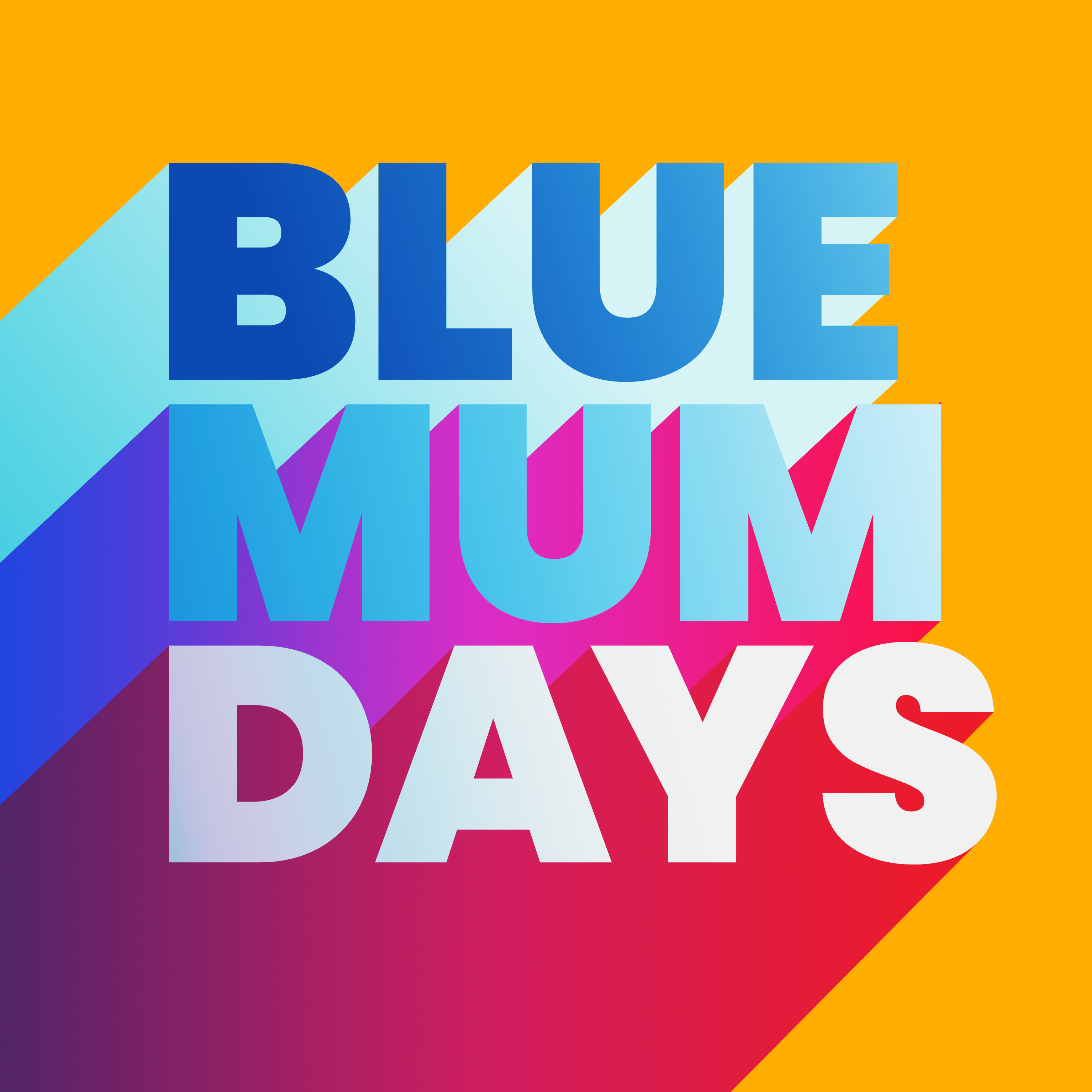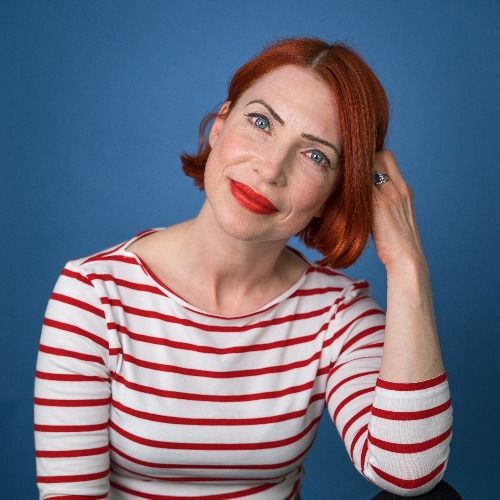Episode 11
If you can survive PND, you can survive anything: LIZ WISE (Part 2)
I catch up again with Liz Wise, specialist PND Counsellor. In Episode 1 she talked to me about her lived experience of PND. This time she talks about her work with her charity Cedar House Support Group and how out of the thousands of women she has helped over 30 years, every one has made a full recovery from this horrible illness.
*TRIGGER WARNING: CANCER, SUICIDAL THOUGHTS*
IN THIS EPISODE WE DISCUSS:
[00:00] Teaser quote
[00:58] Introduction to Liz Wise (Part 2)
[02:26] Helping other mums after recovery - training in counselling and setting up Cedar House
[08:30] The privilege of helping women go from rock bottom to full recovery
[09:00] Things that may predispose parents to getting PND
[11:40] How Liz's experience of cancer and losing her father contributed to her own PND
[12:54] Risk factors in parents
[15:02] The role of anti-depressants
[17:46] My own positive experience of taking anti-depressants
[20:30] The lack of understanding with some GPs and health visitors
[21:31] How the pandemic has enabled Cedar House to support to women online
[22:03] How to get in touch with Liz for support (see link in 'Key Takeaways')
[22:59] The reassurance of talking to other women going through PND
[24:50] How you will get better, even if you can't see that right now
[25:54] How Liz thought she had a personality change and withdrew when she had PND
[26:39] How medication can get you back to your old self
[27:23] How PND 'hooks' anxieties - Liz's trouble bonding with Emma and health anxiety
[30:27] The 'hook' of breastfeeding anxiety and its relation to PND
[38:48] Advice for partners, friends and family who want to help
[45:38] How much courage it takes to open up about how you're feeling
[47:57] Jake Mills and the Hub of Hope: It's not mental illness, it's mental health
[48:39] How early intervention is so important
[49:40] Helpful messages for mums going through this - there is no 'perfect' parent
[52:50] You are not weak for having PND.
KEY TAKEAWAYS:
- Cedar House Support Group - how to get in touch with Liz
- The majority of women Liz has seen have suffered from a hormonal or chemical imbalance.
- 70-80% of women Liz sees have some issue from the past that is unresolved.
- Risk factors can include women who have had depression in the past, have had multiple births, suffered from abuse, been through fertility treatment/IVF or are in unsupported relationships.
- High expectations of how wonderful it's going to be vs. the reality can also be a risk factor.
- Anti-depressants are made to combat depression, just like antibiotics are made to combat infection. They re-address the imbalance of serotonin in the brain. They don't give you a personality change, they get you back to who you were before.
- Don't feel despondent if the first medication you try doesn't work, there are lots of different types available and there will be a good fit for you. It's just a question of finding it.
- The majority of women who go on anti-depressants do come off them.
- PND can 'hook' onto anxieties - from bonding to health anxiety to breastfeeding issues or even bizarre things. These obsessive, irrational thoughts can be very frightening.
- For some women there is a connection between difficulties breastfeeding and PND.
- Postnatal depression is a recognised and totally treatable condition that you will recover from.
- HOW YOU CAN HELP: Encourage the mum to see her GP. Advise her it won't last forever. Actively listen to her. Try not to pass on your own judgement or opinion. Be kind and patient. - there isn't a quick fix for PND.
- It's important to remember you don't bring this illness on yourself. You can't just 'snap out of it'.
- The Hub of Hope - a directory of mental health support around the UK.
- There is no such thing as a 'perfect' parent. Feeding, changing your baby's nappy and keeping them safe is enough in the early days. You are doing a GREAT job.
- Don't compare yourself to other mothers. Don't get obsessed by social media - that is someone's highlights reel, you don't see the chaos behind-the-scenes.
- Don't feel guilty if you aren't enjoying it - raising a baby can be one of the hardest and most demanding things in the world, and can be boring at times!
If you enjoyed this episode, please share, rate and subscribe. It really does make the difference in helping others find it – which means helping more parents in need.
Follow us:
Join our Facebook Group
Email: bluemumdays@gmail.com
NEXT WEEK’S EPISODE:
In Episode 12 I talk to Hannah Hardy-Jones, founder of the Kite Program mental health app, whose bi-polar disorder was triggered by giving birth.
SUPPORT:
If you are struggling right now, please know that it’s okay to talk and reach out for help.
YOU ARE NOT ALONE AND WILL NOT FEEL THIS WAY FOR EVER.
We hope these support services are helpful (please note we do not check or monitor them individually).
Action on Postpartum Psychosis (APP)
Moderated Forum, click here to find out more.
Email: app@app-network.org
Tel: 020 3322 9900
Andy's Man Club
A non-judgemental talking group for men
https://andysmanclub.co.uk/club-information/clubs/
Email: info@andysmanclub.co.uk
Association of Postnatal Illness
Helpline: 10am – 2pm – 0207 386 0868
Email: info@apni.org
Live chat online facility
Free NHS-accredited Baby Buddy app offering
evidence-based information and self-care tools to help parents during pregnancy
and early stages of parenting.
App users also have access to a confidential, text-based Crisis Messenger which provides
24/7 support for new and expectant parents who are feeling extremely anxious or overwhelmed.
Email: support@birthtraumaassociation.org.uk
Contact CALM
on their national helpline: 0800 58 58 58 (5pm-midnight)
Email: lwise@talktalk.net (Liz Wise)
Mobile: 07773 283556
Offers support and knowledge through a community of dads on practical parenting and fatherhood.
Fathers Reaching Out
https://www.reachingoutpmh.co.uk/
Run by Mark Williams, campaigner, speaker and writer, offering support to dads.
A directory of mental health support around the UK.
Make Birth Better (Birth Trauma Support)
Email: hello@makebirthbetter.org
Peer support available, email info@maternalocd.org to
arrange
Helpine: 0800 999 5786, open Mon-Fri 10am –
4pm with support offered in English, Urdu, Punjabi, Mirpuri, Putwari, Hindko,
and Bengali.
Email: info@mwnhelpline.co.uk
Online chat: www.mwnhelpline.co.uk
Text: 07415 206 936
Netmums offer peer support via their Maternal Mental Health Drop-In
NHS
Contact your local GP surgery.
Call the NHS on 111
or contact a local NHS urgent mental health helpline
If you are in crisis, visit Accident & Emergency at your nearest hospital.
Helpline open from 9am-8pm every day – 0843 2898 401
Email support available – info@pandasfoundation.org.uk
Petals offers free-of-charge specialist counselling to anyone who has experienced pregnancy
or baby loss.
Web: petalscharity.org/counsellingcontact/
Email: counselling@petalscharity.org
Tel: 0300 688 0068
Tel: 116 123
(this is a free telephone number and will not appear on the phone bill)
Web: www.samaritans.org
Email: jo@samaritans.org
Text SHOUT to 85258 to start a confidential conversation with a trained Shout volunteer.
Twinline is Twins Trust’s listening service for parents of twins, triplets and more. All
the calls are answered by volunteers who have multiples themselves.
Twinline is open Monday to Friday 10am to 1pm and from 7pm to 10pm. 0800 138 0509,
alternatively email asktwinline@twinstrust.org.
Web: twinstrust.org/let-us-help/support/twinline.html
Tommy’s has a team of in-house midwives who offer free support and information for women and their families at any stage of pregnancy and after the birth.
Web: www.tommys.org
Helpline: Tommy’s
helpline has been closed temporarily but their midwives are answering questions
via email, Facebook, Instagram and Twitter.
Email: midwife@tommys.org
MUSIC by Joseph McDade

